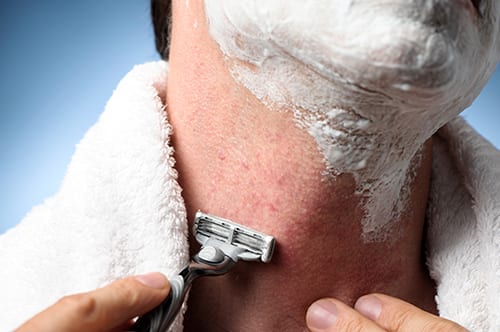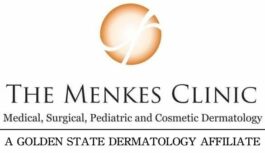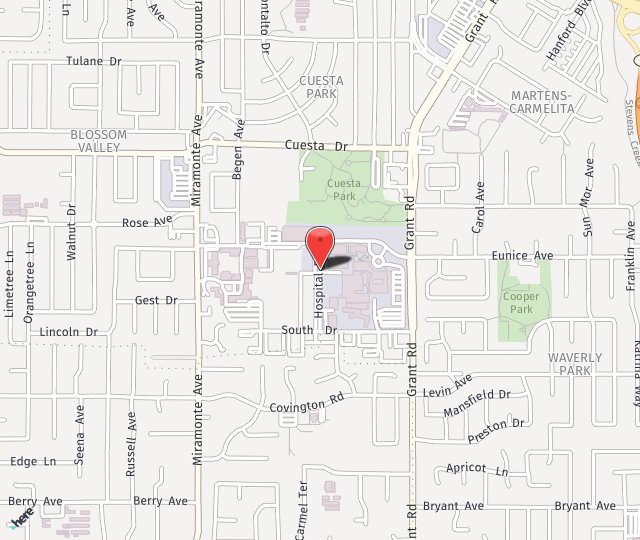Folliculitis is a common type of skin condition involving inflammation of hair follicles. Although not of life threatening seriousness, this condition can cause pain, itching, and embarrassing cosmetic effects. If left untreated, it can result in long-term scarring.

Treatment recommendations vary, depending on factors including the specific type of folliculitis, your skin type, and your skin care regimen. When you visit The Menkes Clinic & Surgery Center in Mountain View, CA, we will begin with an evaluation and consultation.
Types Of Folliculitis
- Pseudofolliculitis barbae (razor bumps) – Ingrown hairs and irritation of follicles, usually caused by shaving or waxing
- Bacterial folliculitis – An infection of the hair follicles, usually by staph bacteria
- Pseudomonas folliculitis – Red, itchy bumps caused by exposure to pseudomonas bacteria, which is commonly found in poorly maintained hot tubs
- Pityrosporum folliculitis – A chronic rash caused by yeast infection
- Deep folliculitis – Several subtypes involve painful infection deep within the follicles, such as boils
Symptoms
Folliculitis is most likely to develop in areas that you shave or wax regularly. The signs include:
- Whiteheads (pimples) or small red bumps around hair follicles
- A large, swollen bump or cluster of bumps
- Tender or painful areas of skin
- Burning or itching sensation
- Blisters filled with pus
Prevention And Treatment
The best way to avoid folliculitis is to protect your skin from damage and from exposure to bacteria. One of the most common causes is shaving. In our efforts to achieve the smoothest skin possible, hairs can be cut too short, causing it to curl back and grow inward. Shave less frequently, and more carefully. Alternate methods of hair removal, such as depilatory creams or laser treatment are a good option for individuals prone to razor bumps.
If you notice signs of folliculitis, keep the area clean, but avoid excess abrasion. Over the counter, anti-infective ointments may be beneficial. If the symptoms don’t clear up within a few days, it is time to see a dermatologist. After an examination, Dr. Menkes will recommend the best treatment depending on the type and severity of folliculitis.
Please call The Menkes Clinic & Surgery Center at 650-962-4600 if you have any questions or would like to schedule an appointment.


